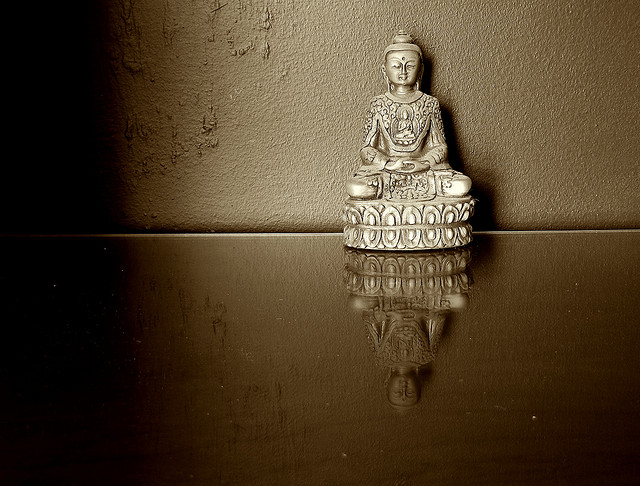The prophets lived before the time of the free market.
Did this influence their message about wealth?
It’s tempting, while pursuing a spiritual life, to pit it against capitalism as a competing ideology. It doesn’t matter which path you follow—all the prophets denounced wealth.
Jesus said,
“It is easier for a camel to squeeze through the eye of a needle than for a rich man to enter the Kingdom of God.”
It goes unacknowledged, however, that none of the prophets lived in a free market where wealth was the product of hard work and innovation. They likely never met men who worked honestly for their money as it was almost exclusively transferred through heredity, stagnated among royal families and their minions. These families were inherently superior to the common man, descendants of the gods, or so they thought.
It was thousands of years before a true free market existed.
I started to wonder if the prophets’ message about wealth would change if they saw a free market— if it was more an attack on elitism and entitlement than working. It’s difficult to imagine the prophets telling a hard working family to throw away their basic livelihood. Viewed through their eyes, a free market might look like a flat out miracle.
At age 28, prince Siddhartha Gautama left an extravagant life in an Indian kingdom to find a universal solution to happiness. He started by apprenticing himself to the most revered thinkers of the time. He learned from masters teaching both rational/materialist, and mystical paradigms.
It is said he quickly absorbed each master’s difficult teaching and was even asked to assume leadership over their communities. Ultimately, he refused, citing their extreme and narrow viewpoints as limiting. Extreme views of any kind do not adequately describe reality. They exaggerate some points while ignoring others, he said. This became a cornerstone of his teaching.
The Buddha was unique in his pragmatic view of spirituality.
A more rational man never walked on earth. He reasoned that happiness is the underlying desire to all things and that our thoughts, words and actions should align with this. He did not claim divine right or mystical powers. He laid out a precise and practical “program” for each of his students that, if followed, would lead them to the same state of unlimited happiness he experienced.
He was adamant, his wisdom is of no value unless applicable to everyday life. He met followers as they were, flawed, and demonstrated realistic practices for improvement.
As the owner of a competitive business and a practicing Buddhist, making amends between these two lifestyles feels impossible. As if the balance the Buddha preached thousands of years ago can’t possibly apply to my hectic life, like nothing I do lives up to moral standards, like every step I take toward one leads me away from the other.
“To think, we must eat.” ~ Teilhard de Chardin
It’s easy for those of us who’ve been grandfathered into the benefits of capitalism to point out its flaws. If measured simply in terms of producing basic survival needs, however, the necessity of capitalism can’t be ignored.
Though almost universally unrecognized, the extraordinary fact is that we are in the midst of the fastest period of poverty reduction the world has ever seen. According to a study by Yale University, the global poverty rate, which stood at 25 percent in 2005, is decreasing 1–2 percent a year or around 70 million people. Advances in human progress on such a scale are unprecedented.
If there is a better system for delivering basic needs on a world scale, I have not seen it.
Nor have you.
Would the Buddha have defended everything done under capitalism? No way.
But with its history of success as a witness, I believe he’d recognize it as the best available for sustaining life. While we are now experiencing adverse personal and societal effects of extreme capitalism, it shouldn’t be ignored that it consistently lifts the world to higher standards of living.
Making improvements to a system that works is far more effective than starting over.
While often framed as opposing ideologies, capitalism and spirituality both provide things essential to well-being.
Condemning capitalism as a whole because some take it to extremes is no different than condemning spirituality because some of them are assholes. Similarly, a capitalist system that ignores the subtler aspects of human well-being does not deliver any true value at all
Adjusting capitalism may be the issue that defines our age. The planet simultaneously demands resources for 7.2 billion people while moderating use of its resources. Employees are pushed to competitive levels that make living a happy life nearly impossible. The conversation about change now seems stagnated.
To me, a solution starts by recognizing that capitalism and spiritual values similarly aim to advance life and are equally essential to a functioning world. Any vision of heaven-on-earth will have to include both.
So, would the Buddha have been a Capitalist? I imagine him recognizing it as essential, but pointing out a basic design flaw—that it promises human advancement while altogether ignoring the most fundamental human desire for happiness.
Though he would not support all or even most of the decisions made within it, I believe he would support capitalism’s basic tenets of freedom and life-enhancement. If alive today, I believe the Buddha would encourage those who aspire to create value, but with honesty and intentions pointed toward what ultimately creates value—lasting happiness.
It’s impossible to know what our world would look like through his eyes.
Contemplating these things helps create unity between ancient wisdom and modern challenges. Nothing I do in my career will live up to moral perfection. But neither will my spiritual practice. I’ve realized this is a poor excuse for not participating in either.
Balance is possible within imperfection, I step forward with confidence.
~
~
~








Read 11 comments and reply